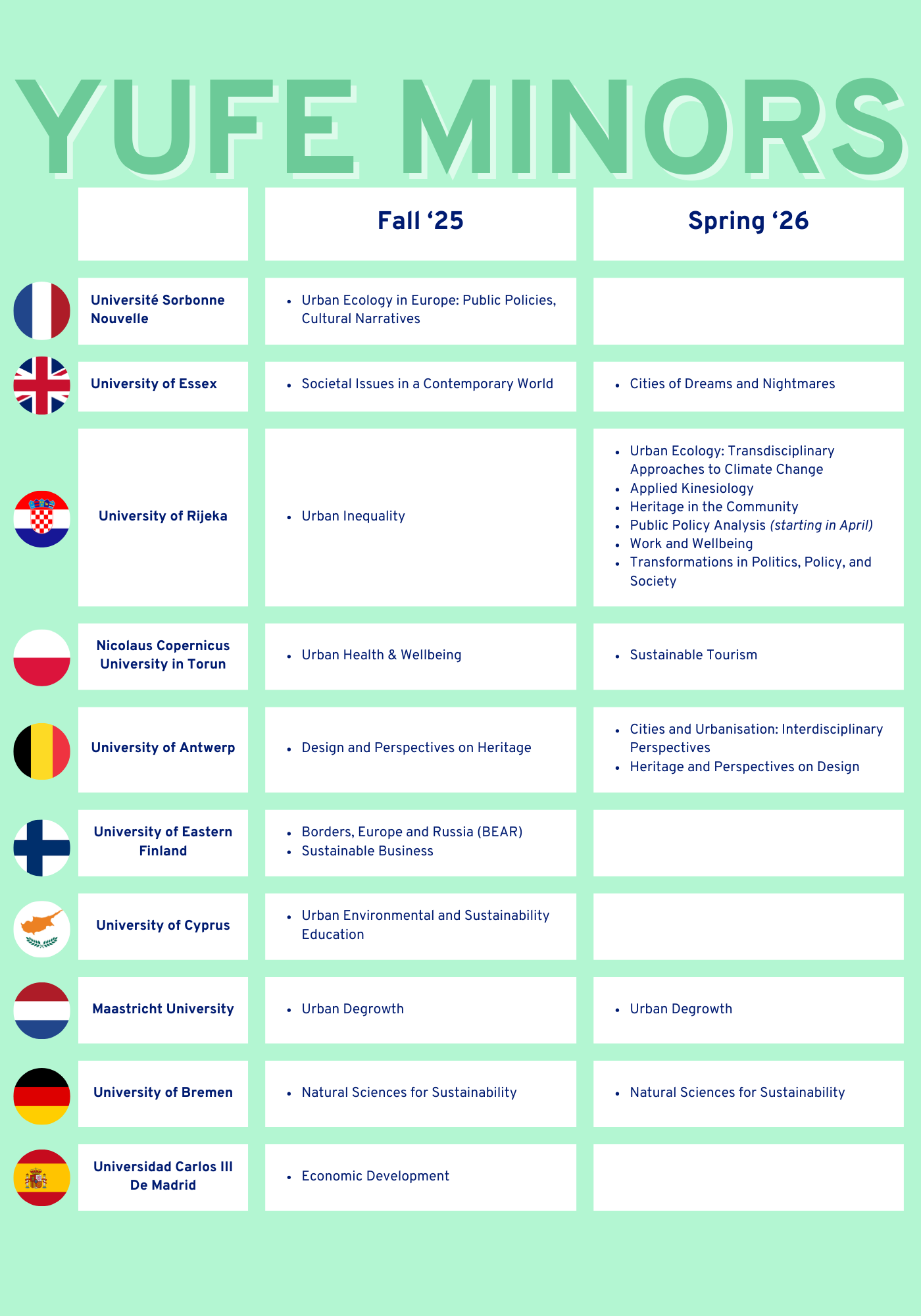UM students can enrol in YUFE Minors for 2025-2026
Maastricht University (UM) students will have the opportunity to enrol in 23 minors through the Young Universities for the Future of Europe (YUFE) Alliance in the 2025-2026 academic year. These 30-ECTS minors, covering a wide range of disciplines, will be offered across all 10 YUFE universities, providing a unique international learning experience.
The YUFE minors allow students to expand their academic horizons, deepen their expertise, or explore new fields beyond their primary area of study. Some of the available minors include Urban Inequality, Sustainable Tourism, Design and Perspectives on Heritage, Borders, Europe and Russia and Natural Sciences for Sustainability. Detailed information on the available minors can be found on the YUFE Virtual Campus.
Key deadlines and enrolment details
Students interested in a YUFE minor starting in Fall 2025 must submit their expression of interest by April 9, 2025. For minors beginning in Spring 2026, the deadline is October 10, 2025. As selection is based on a first-come, first-served basis, students are encouraged to express their interest as early as possible.
Erasmus+ funding available
Participation in the YUFE minors may be supported through Erasmus+ student mobility funding, helping to cover travel and living expenses for students studying at partner universities within the alliance.
To express interest in a YUFE minor, students can contact yufe-admission@maastrichtuniversity.nl.
Overview of YUFE minors

Also read
-
Andrés Caceres Solari on No room for Human Rights in Gaza and Ukraine: How the Law Legitimizes Urban Devastation
Pick Our Brains Session with Andres Caceres Solari

-
AMIBM hosts the final Realise-Bio conference
The Aachen Maastricht Institute of Biobased Materials (AMIBM) hosted last week the third and final Realise-Bio annual conference, bringing together the Dutch and German bioeconomy ecosystems at the Brightlands Chemelot Campus.

-
Macrophages as key to treating liver fibrosis
Sabine Daemen is researching how certain macrophages can slow down fatty liver disease and fibrosis in order to develop new therapies.
